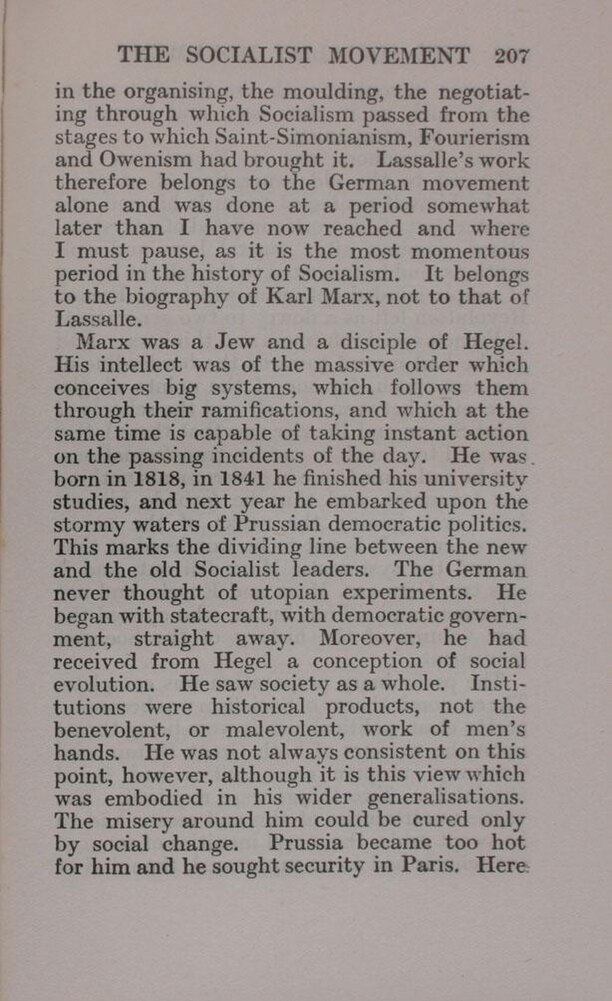in the organising, the moulding, the negotiating through which Socialism passed from the stages to which Saint-Simonianism, Fourierism and Owenism had brought it. Lassalle's work therefore belongs to the German movement alone and was done at a period somewhat later than I have now reached and where I must pause, as it is the most momentous period in the history of Socialism. It belongs to the biography of Karl Marx, not to that of Lassalle.
Marx was a Jew and a disciple of Hegel. His intellect was of the massive order which conceives big systems, which follows them through their ramifications, and which at the same time is capable of taking instant action on the passing incidents of the day. He was born in 1818, in 1841 he finished his university studies, and next year he embarked upon the stormy waters of Prussian democratic polities. This marks the dividing line between the new and the old Socialist leaders. The German never thought of utopian experiments. He began with statecraft, with democratic government, straight away. Moreover, he had received from Hegel a conception of social evolution. He saw society as a whole. Institutions were historical products, not the benevolent, or malevolent, work of men's hands. He was not always consistent on this point, however, although it is this view which was embodied in his wider generalisations. The misery around him could be cured only by social change. Prussia became too hot for him and he sought security in Paris. Here-
